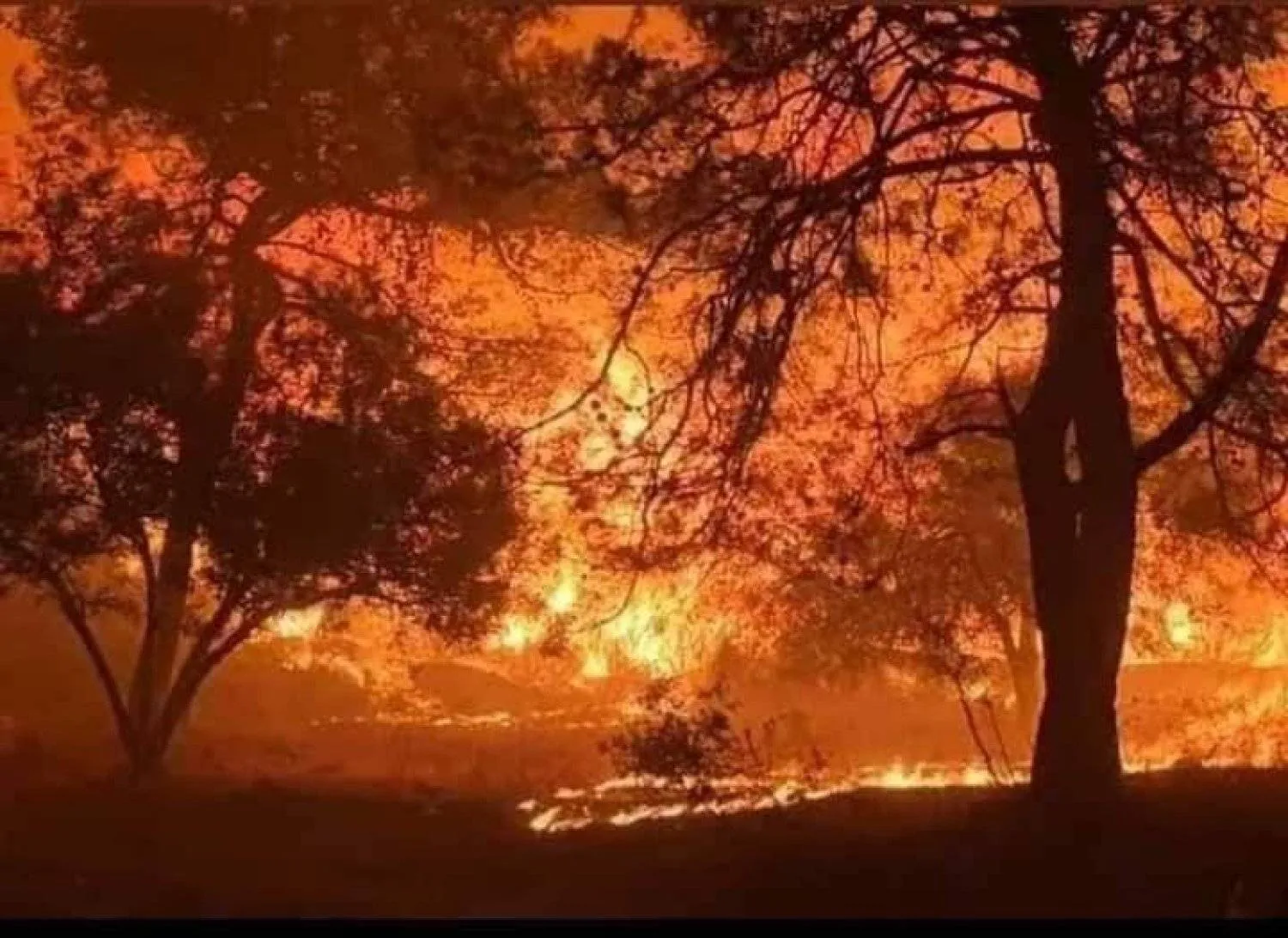As the UN warns of a potential “catastrophic conflict” spreading to Syria, Israel continues to target sites it claims are linked to Hezbollah.
These strikes exacerbate the already dire security situation and deepen the country’s unprecedented humanitarian and economic crisis.
On Saturday morning, heavy explosions rocked the western countryside of Sweida for several hours.
Local media reported that the blasts occurred at a military site associated with the 405th Brigade of government forces near the town of Majdal.
Emergency responders rushed to the scene as rockets were fired indiscriminately from the site, hitting Majdal and nearby villages. The cause of the fires that erupted remains unknown.
The UK-based Syrian Observatory for Human Rights reported that the cause of a fire at an arms depot belonging to the 405th Brigade is still unclear, with rocket debris landing in civilian areas of the village of Majdal.
No official statement has been made regarding the explosions in the Sweida countryside.
However, the news site Sweida 24 shared footage showing rockets being fired randomly from the 405th Brigade due to the fire. They urged residents in Sweida to stay alert because of the erratic rocket fire.
This situation follows Israeli strikes on several sites in Qusair, southwest of Homs.
On Friday, the Jousiya crossing was hit again, raising concerns about unexploded shells and rockets landing in residential neighborhoods and near schools.
This adds to the dangers posed by landmines and unexploded ordnance from previous conflicts. The Syrian Observatory reported that these remnants are still causing explosions, endangering civilians throughout the country.
Last month, they documented the deaths of eight civilians, including five children, and injuries to seven others.
Additionally, a young man was killed and three others injured in Latakia during an explosion while they were fighting fires in the Qardaha area on Friday.
Firefighters reported dealing with over sixty fires on Friday and Saturday, with some hotspots still burning in Mazira and around the Selendrin-Samra mountain area.









